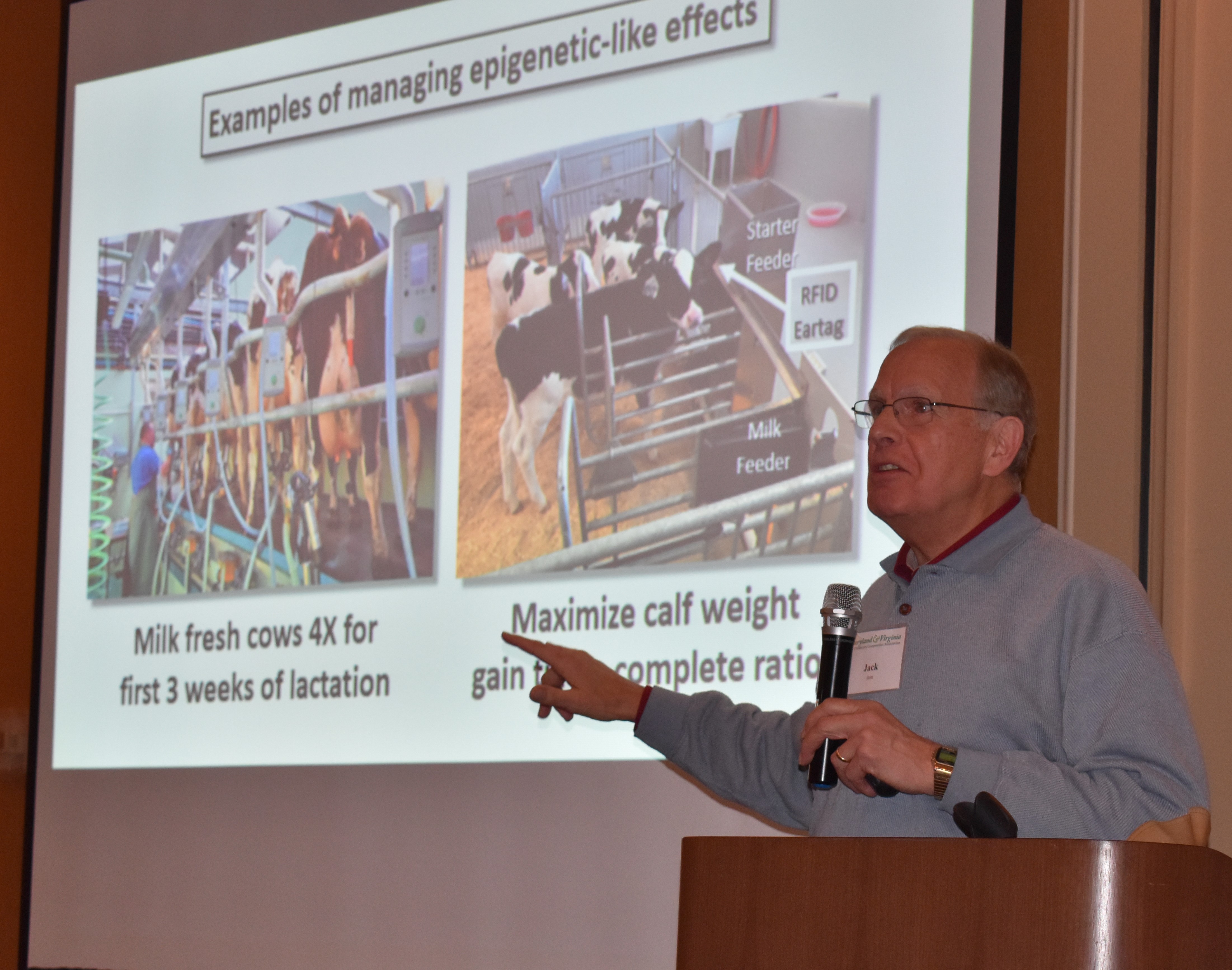Maryland & Virginia Young Cooperators Catch a Glimpse at the Future
(RESTON, Va., Jan. 30, 2019) – At a time when dairymen are thinking 1, 3, 5 and 10-years ahead, Dr. Jack Britt challenged Young Cooperators (YCs) attending Maryland & Virginia Milk Producers Cooperative’s annual YC Conference to fast forward 50 years, and to consider what dairy farming in 2069 may look like. “If we [the dairy industry] can capitalize on the opportunity, I think the dairy outlook is pretty good,” he told attendees.
Dr. Jack Britt is a teacher, scientist, executive and entrepreneur. He served as a faculty member and leader at Michigan State University, North Carolina State University and The University of Tennessee System. Dr Britt leads a team of 9 expert forecasters from around the world that has been studying what dairy farming on a global basis may look like in 50 years. The team started this effort in August of 2015 and has continued to modify their projections on a regular basis.
Starting with the consumer, Dr. Britt shared that where people are going to be consuming dairy is of importance. In 2069, Dr. Britt’s data shows 93% of the population growth and consumer demand for dairy will be in Asia and Africa. “Nigeria will have a larger population than the U.S. in 50 years, and that’s an opportunity to grow dairy,” Dr. Britt shared.
“The majority of our [U.S.] customers will be offshore,” said Dr. Britt. “Developed countries like the U.S. and the European Union will not have as much growth.”
How does the U.S. dairy industry evolve to feed a growing population overseas? Dr. Britt foresees farms of the future being larger operations located in closer proximity to one another. This would allow for farms to collaboratively buy in bulk, everything from general supplies and equipment, to sharing resources such as a methane digester, a payroll team, or even centralized feed centers.
Cows and herd sizes will continue to increase. The cow of the future will be a smaller, more robust animal with an even smaller environmental footprint than cows of today. Dr. Britt’s expert forecasters suggest there will be a demand for gene editing to move genes within and among breeds, to create the right cow for the right habitat and geography.
Among his key takeaways, Dr. Britt encouraged the YCs to give some thought to five key tips he has gleaned from a successful dairy farmer entrepreneur:
- Do you have a 5 and 10 year plan?
- Do you know your strengths and weaknesses, both personally and operationally?
- Know your costs, and how they compare to the “competition”?
- Read, Read, Read and then Read some more.
- Share. Share your practices, ideas, successes, failures, enterprises, futures.
In closing, Dr. Britt’s challenged Maryland & Virginia’s YCs to consider “what’s your vision?” And how are you going to mobilize to achieve your vision?
Afterwards YCs surrounded Dr. Britt’s table for follow-up conversations and questions. YC Stephen Bray from Penhook, Virginia said, “I’ve been coming to this conference for almost 15 years and Dr. Britt’s presentation has to be one of the most interesting and thought-provoking ones I’ve heard.”
Maryland & Virginia Milk Producers Cooperative’s YC program provides professional development opportunities for members ages 18-40. The cooperative holds two annual YC events, a formal leadership conference each winter and a family focused summer event. The program provides a venue for YCs to interact with co-op leadership, connect with their peers, share triumphs and lessons learned, and to return home inspired and recharged. To learn more about the cooperative’s YC Program or membership programs in general visit our website.
Contact:
Lindsay Reames
804-370-4324


